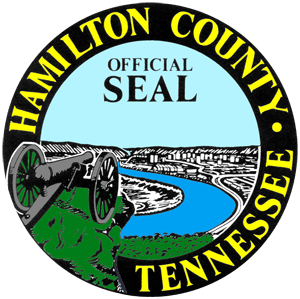Frequently Asked Questions regarding Stormwater
Question: What is stormwater runoff?
Answer: Storm water runoff is the water that flows off roofs, driveways, parking lots, and other hard surfaces during rain storms. Rather than being absorbed into the ground, it pours into storm drains, catch basins, ditches, and culverts and enters the local stream, lake or river. Storm water does not receive treatment like wastewater. It simply returns to the streams and river.
Question: Why is stormwater an environmental issue in our area?
Answer: In urban areas, storm water carries harmful pollutants, erodes topsoil and stream banks, and destroys the habitat of fish and aquatic life. Common pollutants like oil from parking lots and sediment from construction sites as well as the thermal heating from contact with warm roofs and streets are detrimental to storm water quality thus affecting stream quality.
Questions regarding Fees
Question: Why am I being charged this fee?
Answer: An unfunded federal mandate requires cities and counties with an urbanized population to provide a water quality program. Dense populations are directly associated with poor water quality throughout the USA. The program will provide pollution investigations and require construction activity plans review and inspection. The annual storm water fee along with permit fees provide the funding for this program.
Question: When did this fee start?
Answer: The Hamilton County Water Quality Program fee first appeared on the 2004 property tax bill.
Question: Who is responsible for the fee?
Answer: The property owner is responsible for payment of the storm water fee.
Question: If I think my fee is wrong, how do I appeal?
Answer: A written appeal can be submitted to the program manager for consideration at the next meeting of the Hamilton County Water Quality Management Committee.
Question: Can the fee be prorated?
Answer: No, unfortunately it cannot be prorated
Question: Is anyone exempt from paying the fee?
Answer: If the property is tax exempt, then it is also exempt from the stormwater fee.
Question: How is my fee calculated?
Answer: If the land use of the property is residential, the storm water fee is $9.00 per residential unit. If the property is used for commercial, industrial or manufacturing activity, it is assessed at a rate of $108 per impervious acre. This is all based on the average residential unit with 3500 square feet of impervious area.
Question: I have vacant properties. One is charged a small fee, and the others are not charged this fee at all. Why?
Answer: If there is a driveway, parking lot or even a shed on the property, it is subject to the storm water fee since impervious area is the determining factor. If there are no forms of impervious area on the property, no storm water should be assessed. Aerial photographs are used to determine impervious area.
Question: Are there any interest or penalties assessed on late stormwater fees?
Answer: Yes. Interest and penalties are assessed at a rate of 1% and 1/2% respectively.
StormWater Program Questions
Question: How was the StormWater Program Developed?
Answer: Hamilton County, East Ridge, Collegedale, Ridgeside, Lakesite, Red Bank, Lookout Mountain, and Soddy Daisy entered into an interlocal agreement to establish a multi-jurisdictional storm water program in order to comply with the federal mandate. Local government staff worked with a consulting firm to develop the program components, budget and funding mechanisms.
Question: Is the entire County part of this program?
Answer: No. All properties in East Ridge, Collegedale, Ridgeside, Lakesite, Red Bank, Lookout Mountain, and Soddy Daisy are in the program area. The program is also required to include the urbanized portion (over 1,000 people per square mile) of unincorporated Hamilton County. See Program Area
Other Questions
Question: What is considered to be the County’s stormwater system?
Answer: All man-made storm drains and ditches, as well as natural streams, rivers and lakes in the program area are part of the stormwater system. The program is required to respond to pollution problems in all of the water bodies, therefore they are included in the County’s stormwater system.
Question: How do I report water pollution?
Answer: If you see water pollution, witness any material spilled or dumped into a waterway, or observe conditions in a storm drain or stream that indicate a polluting activity has occurred, please report immediately Illicit Discharge/Illicit Connection Report Form! You may also call the reporting hotline at (423) 209-7888. If it is after regular business hours, please leave a detailed message. If the situation is an imminent threat to life or health, call 911.
Question: Where do I go to dispose of household hazardous waste?
Answer: Proper disposal methods for household hazardous wastes and other liquid wastes can be found at the
Hazardous Waste Facilities
Relevant Links
Hamilton County Zoning and Subdivision Regulation
Hamilton County Engineering Department
Hamilton County Public Works
TN Department of Environment & Conservation
EPA – Phase II
TN River Rescue
Jurisdictions in Program and their Websites:
City of Soddy Daisy
Town of Lookout Mountain
City of Collegedale
City of Red Bank
Other MS4 cities with Water Quality Program websites:
Chattanooga: www.chattanooga.gov/Public_Works/70_501.htm
Knoxville: www.knoxvilletn.gov/government/city_departments_offices/engineering/stormwater_engineering_division
Franklin: www.franklintn.gov/government/departments-a-j/engineering/stormwater
Cleveland: www.clevelandtn.gov/164/Stormwater-Division
Athens: www.cityofathenstn.com/publicworks/swbmp.html
